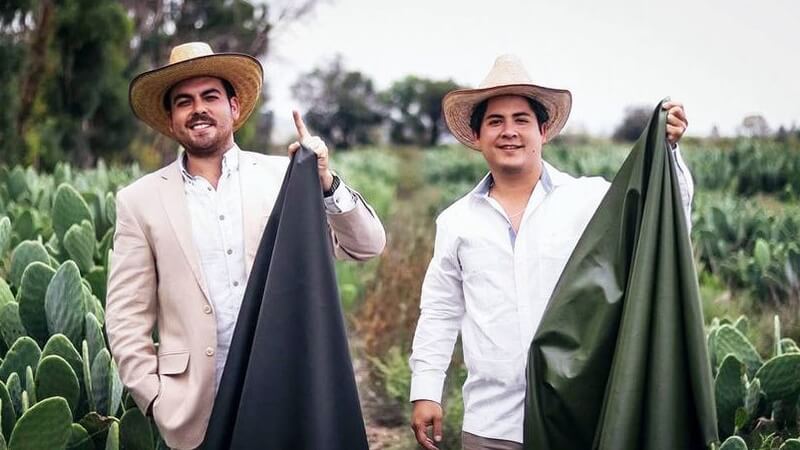Two entrepreneurs from Mexico have created vegan leather out of cactus leaves. The cruelty-free leather is called Desserto.
Adrián López Velarde and Marte Cázarez are said to be the first to create organic leather out of only nopal (prickly-pear) cactus. They don’t use toxic chemicals, phthalates, or PVC in their design.
The vegan leather is partially biodegradable. It’s flexible, breathable, and lasts for at least 10 years. The material feels like animal-based leather. Companies can use it in furniture, cars, leather accessories, and clothing.

The Environmental Impact of Leather
The environment motivated López Velarde and Cázarez to make the cruelty-free leather. “We identified that the problem of environmental pollution was serious,” López Velarde told FashionUnited.
Tanners treat animal-based leather with 250 different substances, including formaldehyde, cyanide, arsenic, and chromium. These substances enter waterways — polluting oceans and marine life — and raise the risk of disease for local communities.
Raising livestock — for food or for their skins — generates large amounts of emissions. Livestock rearing accounts for 14.5 percent of all anthropologic greenhouse gas emissions.
The pair opted for cactus due to its sustainability. “The idea of using this raw material was conceived because this plant does not need any water to grow, and there is plenty of it throughout the Mexican Republic,” López Velarde explained. “Also, symbolically, it represents all of us Mexicans and everybody knows it.”
Companies that incorporate the plant-based leather into their work could lower water consumption by 20 percent.
“Currently, the volume used by the fashion industry alone is huge, almost 79 billion cubic meters, which is enough to fill almost 32 million Olympic-size swimming pools,” López Velarde explained.
The vegan leather also helps reduce plastic waste by 32 to 42 percent.
The Vegan Leather Boom
More companies are crafting cruelty-free leather. Footwear brand No Saints turns food waste into vegan leather sneakers. The company uses Piñatex — a plant-based leather made from pineapple leaf fibers — as well as apple peels.
Porsche’s new Taycan electric car can be ordered with a vegan leather interior. Porsche uses recycled polyester fibers to make the material. It requires 80 percent less CO2 to produce than its animal-based counterpart.


